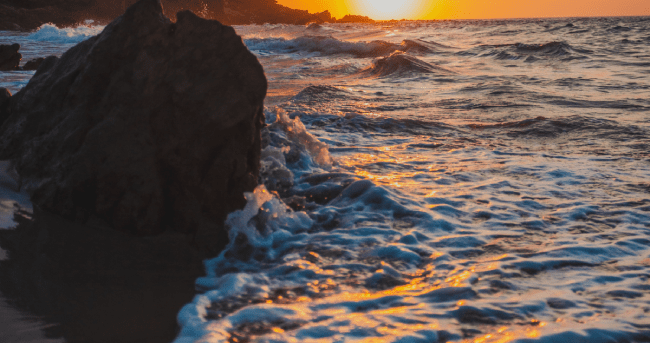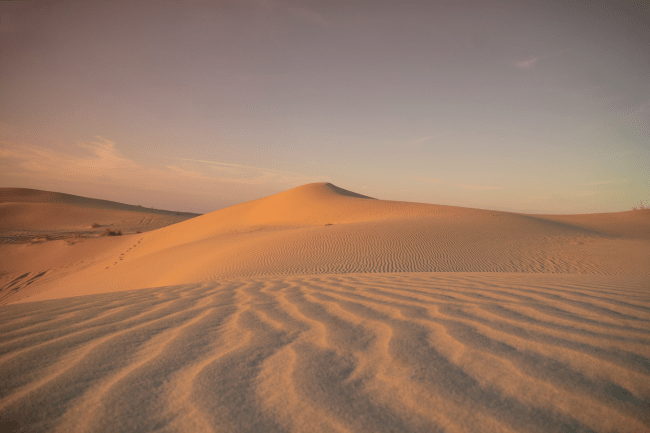
Welcome to Algeria
One of Africa’s best-kept secrets, Algeria is an undiscovered tourism gem, from its ancient fortified towns and Roman ruins to the mediterranean sea in the north and the Sahara desert. Algeria, Africa’s largest country, should be on everyone’s must-see list.
To help you plan a trip to this wonderful African paradise, we’ve created the ultimate Algeria travel guide, filled with travel tips, tricks, and travel information.
Document checklist for Algeria
- Tourist visa
- Health Declaration / Medical Form
- Valid passport (for at least six months after the date of entry)
- Sufficient funds
- Return airline ticket
Essential Algeria travel information
-
Currency - Algerian dinar (دج (Arabic), DA (Latin), Code DZD). $1 is equivalent to approx. 140.37 DZD
-
Daily budget for 1 person - $59
-
Languages - Arabic and Standard Algerian Berber
-
Socket type - Types C and F. Algeria operates on a 230V supply voltage and 50Hz
-
Time zone - Central European Standard Time (GMT+1)
-
Top 3 cities to visit - Oran, Constantine, and Algiers
-
Top 3 landmarks/monuments - Roman Baths, Jedars, and the Arch of Caracalla
Visa information for Algeria
Most people who want to visit this huge country will require a tourist visa from a designated Algerian embassy or consulate. The only exception is travelers from one of the visa-free countries.
Passport holders from only seven other North and East African countries can gain visa-free access to Algeria and can only stay for up to 90 days. If they intend to stay longer, they will also be required to apply for a visa.
Currently, a paper visa is the only option regardless of whether the applicant needs a tourist visa, business visa, transit visa, work visa, student visa, or another visa alternative.
Tourist e-Visa
Despite the above, the Algerian government has hinted at the possibility of an e-Visa in the future of Algerian visa options. This will be a vital step in expediting the visa process for tourism and business travel.
The e-Visa will enable travelers to apply for an Algerian visa online, meaning they will no longer need to wait in the long embassy or consulate queues.
Health Declaration
Aside from a visa, the Algerian government currently requires all travelers to fill out the Algerian Health declaration, which is a document that verifies the health status of the traveler who wishes to enter the country. This document IS NOT A VISA REPLACEMENT; it is only a health statement. iVisa can help you apply for this document without visiting the Algerian embassy.
Typical costs and budget for Algeria
-
Daily spending per person - $59
-
Meals - $13
-
Bottled water - $0.30
-
Transport - $1.10
-
Entrance tickets and guides - $17
-
Hotel - A hostel room per night costs $12, whereas a 3-Star hotel room costs about $59 per night per person A comfortable mid-range one-week stay in Algeria costs about $615 per person.
Transport and ways to travel around Algeria
There are many ways to explore and travel through Algeria, which is excellent for those on a budget. Here are some of the most popular options:
-
Plane: Due to the large size of Algeria, one of the best ways to see all ends of the country is by plane. Algeria has two main international airports: Houari Boumediene Airport in Algiers and Es-Sénia Airport in Oran. Both of these accept flights from other countries, including North African countries. There are many other domestic airports; thus, flying is the easiest and most comfortable way to get around. Local airlines like Air Algérie and Tassili Airlines have regular flights between the main cities.
-
Bus: A more cost-effective way to travel around Algeria is by bus. You can even enter Algeria by bus from Tunisia, and there is a long-distance bus network throughout the country; however, the network is more extensive in the north. It’s recommended to buy tickets in advance.
-
Trains: The SNTF has ensured many regular and comfortable trains connecting Algiers to Béjaïa, Annaba, Constantine, Tlemcen, and Oran. It is also possible to catch a train between Oran, Béchar, Constantine, and Touggourt.
-
Car: Hiring a car is a great option, but you must also hire a local escort to drive in Algeria. However, this rule is not enforced in the cities in the north.
Safety in Algeria
When traveling to Algeria, there are certain areas to avoid. In general, the areas near the eastern and southern borders should be visited with extreme caution, as they are frequented by armed terrorist groups who reportedly kidnap travelers. It is highly recommended that tourists stick to Northern Algeria.
The U.S. government warns its citizens that it has limited ability to provide emergency services outside the Algiers province. However, if you decide to travel to Algeria anyway, they advise:
-
Reading up on COVID-19 protocols for entering Algeria.
-
Inform local police when visiting locations outside of major cities.
-
Travel by air if possible or stick to highways when using roads.
-
Use reputable travel agents who know the area.
-
Avoid overnight stays outside of the main cities and tourist locations.
-
Obtain an embassy registration before your trip.
Disclaimer: The US government has ruled Overland travel to the Sahara Desert a “Level 4: Do Not Travel” due to terrorist and criminal activity, including kidnapping.
Weather in Algeria
The best time to visit Algeria is in March and between October and November, as the days are cool and sunny. Mid-winter is also a great time to visit; but you must remember that desert temperatures can drop extremely low at night.
The coast has a pleasant Mediterranean climate with maximum winter temperatures of 15°C/59°F and minimum of 9°C/ 48.2°F, and maximum summer temperatures of 28°C/ 82.4°F and a minimum of 21°C/ 69.8°F.
Avoid the spring months, as warm winds blow from the desert, which can cause intense sandstorms and a sharp temperature rise.
Popular cities and towns in Algeria
-
Annaba boasts gorgeous architecture and abundant fresh water and farmland. Its rich history and culture add an undoubted charm and the area has a reputation for being a tranquil haven with breathtaking sea views and white tropical sand.
-
Tlemcen is known for its rich and diverse culture and history, and boasts many musical and artistic styles, including textiles and handicrafts. Its mosque is a focal point as it is an architectural masterpiece that is one of the country's oldest and best-preserved Almoravid buildings.
-
Constantine is the pride of the north with its enchanting ambiance and natural fortress. Renowned as a city of great political, cultural, and economic significance, Constantine has an old-world charm beyond its cosmopolitan city vibe and is home to a thriving Arab-Andalusian music scene.
-
You can’t visit a country and skip its capital. In this case, Algiers has tons to offer. The city is truly picturesque, with two of the country’s most beautiful mosques, wide French-built boulevards, and elegant villas.
-
The lively port city of Oran boasts a rich history and bustling streets and is famed for contributing to North Africa’s liveliest musical movement: raj.
Must do and see in Algeria
-
Explore Roman Ruins: Algeria boasts well-preserved Roman Ruins, and the sites are far less busy than anywhere else in the world, meaning it will be a one-of-a-kind experience. Sites to visit include Djémila, Cherchell, and Timgad.
-
Visit the Sahara Desert: Take a tour of the Sebkha Circuit in Timimoun for stunning views of the Sahara desert, the ksars, and the salt lake.
-
Explore the Casbah of Algiers: Located in the city center of Algeria's capital city is a web of steep, narrow streets with typical houses and grand Ottoman palaces. Get a local guide to walk you through the iconic area and enjoy its beautiful nature.
-
Attend the Timgad Music Festival: This is one of the highlights of summer for music lovers. The festival celebrates music from around the world and Algerian music in the gorgeous Roman ruins of Timgad.
Typical Algerian food to try
-
Chakchouka is a traditional Algerian dish mainly eaten for breakfast. It takes just 20 minutes to make and is made with sautéed onions, tomatoes, spices, and eggs. Chakchouka is eaten with bread, pita, or rice to soak up the sauce.
-
Méchoui is a traditional North African dish named after an Arabic word meaning “roast on a fire.” The meal is made by spicing and roasting meat over a fire. It is usually made for large gatherings.
-
Makroudh is a dish for those with a sweet tooth. This traditional Algerian pastry is made with date or almond stuffing, deep-fried semolina, and honey. Makroudh is excellent paired with coffee or as a dessert.
-
Couscous is often labeled as the national dish of Algeria; it is made from small pellets of steamed semolina topped with meat, vegetables, and various spices. In Algeria, the most popular accompaniments are chicken, carrots, and chickpeas.
-
Harira is a Ramadan staple in Algeria and well worth trying! This smooth and creamy soup is tomato-based and has lamb, beef, or chicken. Algerian harira differs from the Moroccan version because it doesn’t use lentils.
Vaccine information for Algeria
The CDC advises all travelers to be up to date on all routine vaccinations, including Chickenpox (Varicella), Diphtheria-Tetanus-Pertussis, Flu (influenza), Measles-Mumps-Rubella (MMR), Polio and Shingles.
Visitors to Algeria should also get vaccinated for COVID-19, cholera, hepatitis A, hepatitis B, rabies, typhoid, and yellow fever. Speak to your doctor and double-check what vaccination requirements your specific nationality or country requires when traveling to Algeria or North Africa.
Algeria is home to seven UNESCO Sites
Serious stuff aside, let’s talk about interesting facts. Did you know that Algeria, which is one of the most socially developed countries in Africa, is home to seven UNESCO World Heritage Sites? They are the following:
-
Al Qal'a of Beni Hammad
-
Djémila
-
Kasbah of Algiers
-
M'Zab Valley
-
Timgad
-
Tipasa
-
Tassili n'Ajjer
Fun facts about Algeria
Here are some other very cool facts about the North African country of Algeria:
-
Algeria is the largest African nation, covering more than 2 million square kilometers. It borders Mali, Niger, Libya, Tunisia, Morocco, and Mauritania! It is nearly five times the size of Spain.
-
The Sahara Desert makes up around 80% of the country and stretches a total area of 1,905,392 square kilometers.
-
Algeria’s national animal is the adorable fennec fox, which is native to the Sahara Desert and the Sinai Peninsula. This tiny fox only grows to weigh about 1.5-2 kilos! The national football team is nicknamed after it: Les Fennecs.
-
Home to the endangered Saharan cheetah! Since 2015, most of the 250 living Saharan cheetahs have been in Algeria. These gorgeous cats are considered the rarest, most elusive carnivores in the world. They are recognized by their shorter coat and pale color compared to other cheetahs.
-
Algeria was colonized by France in 1830 and only gained independence in 1962. However, freedom came after an eight-year-long war between Algerian insurgents and French colonists. The war caused between 400,000 and a million deaths.

 India Visa
India Visa
 Turkey Visa
Turkey Visa
 United States Visa
United States Visa
 Australia Visa
Australia Visa
 Colombia Visa
Colombia Visa
 New Zealand Visa
New Zealand Visa
 China Visa
China Visa
 Egypt Visa
Egypt Visa
 Vietnam Visa
Vietnam Visa
 Indonesia Visa
Indonesia Visa

